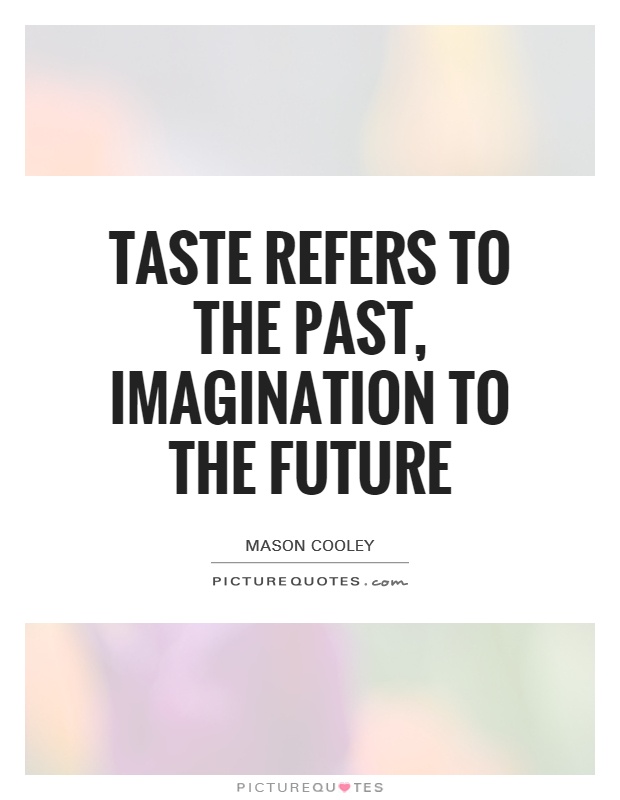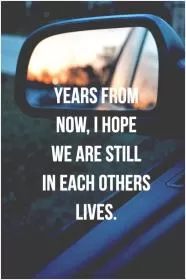Taste refers to the past, imagination to the future

Taste refers to the past, imagination to the future
Mason Cooley, an American aphorist known for his concise and insightful observations on life, once said, "Taste refers to the past, imagination to the future." This quote encapsulates the idea that our sense of taste is often influenced by our past experiences, while our imagination allows us to envision and create possibilities for the future.When we think about taste in the literal sense, it is clear that our past experiences play a significant role in shaping our preferences. Our taste buds develop over time as we are exposed to different flavors and cuisines, and our memories of past meals can influence what we choose to eat in the present. For example, someone who grew up eating spicy foods may have a higher tolerance for heat than someone who did not. Similarly, someone who has fond memories of a particular dish from their childhood may be more likely to seek out similar flavors in the future.
However, taste can also refer to our preferences in a broader sense, beyond just food. Our past experiences, relationships, and cultural influences all contribute to shaping our tastes in music, art, fashion, and more. These preferences are often deeply rooted in our personal histories and can be a reflection of who we are and where we come from.
On the other hand, imagination is a powerful tool that allows us to envision and create possibilities for the future. It is through our imagination that we can dream, plan, and set goals for ourselves. Imagination enables us to think beyond the constraints of the present moment and envision a better, brighter future for ourselves and others.












 Friendship Quotes
Friendship Quotes Love Quotes
Love Quotes Life Quotes
Life Quotes Funny Quotes
Funny Quotes Motivational Quotes
Motivational Quotes Inspirational Quotes
Inspirational Quotes